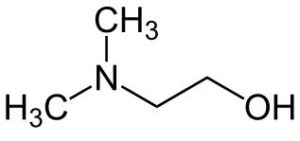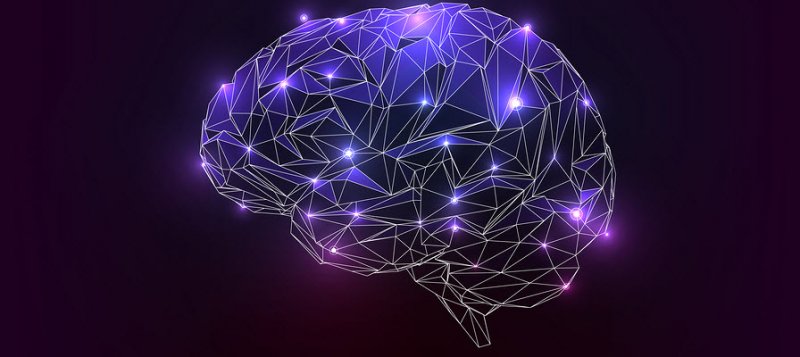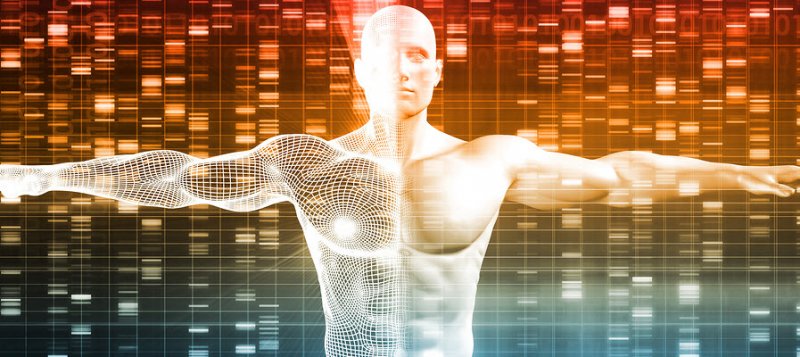Table of Contents
Key Takeaways
- DMAE is structurally similar to choline but not a direct precursor to acetylcholine (ACh), causing confusion about its role as a nootropic.
- It may provide neuroprotection by removing lipofuscin and free radicals from brain cells.
- DMAE boosts choline levels in the brain and stimulates cholinergic receptors, potentially leading to improved mood, energy, and sleep patterns in some people.
- Studies have explored its potential benefits in treating cognitive disorders and ADHD, while it is also used in cosmetics for skin-firming properties.
- Recommended dosage is 100-200 mg per day, with short-term or intermittent use is considered safe, but should be avoided during pregnancy or by those with epilepsy or bipolar disorder.
- If you decide to try DMAE I recommend: Click for Cosmic Nootropic – DMAE
DMAE (Dimethylaminoethanol, Deanol, Deaner) has two methyl groups and is structurally similar to choline, which is a direct precursor to the synthesis of acetylcholine (ACh).
ACh is a critical neurotransmitter that influences everything from memory to muscle control. And it is the relationship ACh has with DMAE that generates most of the hype around DMAE as a nootropic.
But it turns out that DMAE is NOT a precursor to acetylcholine as reported on many nootropic and brain optimization sites. However, many neurohackers report that supplementing with DMAE has worked wonders for their brain.
So here I’ll try to clear up some of the confusion and misinformation surrounding DMAE as a nootropic supplement. And if adding DMAE to your stack makes sense.
DMAE helps:
- Neuroprotection. DMAE helps eliminate lipofuscin and free radicals from brain cells.
- Neurotransmitters. DMAE prevents choline uptake by cells forcing more free choline to be available in your system. And DMAE stimulates cholinergic receptors that may promote the use of acetylcholine (ACh) in your brain.
- Mood. DMAE supplementation may improve mood and energy while influencing sleep patterns.
Overview
DMAE (Dimethylaminoethanol, Deanol, Deaner) is an amine naturally produced in small amounts in your brain. High levels of DMAE are also found in seafood like anchovies and sardines.

Researchers have speculated that DMAE may increase acetylcholine (ACh) levels in the brain by inhibiting choline metabolism in peripheral tissues.
By preventing the use of choline by other tissues (including acetylcholine synthesis), DMAE increases choline levels in the bloodstream.[i]
Once DMAE crosses the blood-brain barrier, it increases choline levels in the brain. So with higher choline levels present, you would expect elevated levels of acetylcholine (ACh).
But research has shown this is not always what happens when DMAE gets to your brain. In one study DMAE was rapidly taken into the brain. But when it reached synapses – nothing happened. Choline levels rose but did not convert into acetylcholine.[ii]
What’s going on here? First, we must look at how acetylcholine (ACh) is made. ACh is synthesized in a single step reaction catalyzed by the enzyme choline acetyltransferase (ChAT).[iii] The rate-limiting steps in ACh synthesis are the availability of choline and Acetyl Coenzyme A (Acetyl-CoA).
The only other source of acetylcholine (ACh) is synthetization from phosphatidylcholine (PC) via phosphatidylethanolamine N-methyltransferase (PEMT).[iv] And this ACh synthesis only happens in cholinergic receptors.
So it would appear that DMAE cannot be converted to either choline or ACh. The only way DMAE can increase choline is by inhibiting choline metabolism.
And the reason why choline levels rise in the brain when supplementing with DMAE is because the choline does not synthesize into acetylcholine (ACh).[v]
So why do some neurohackers experience a benefit in increased focus, clearer cognition, and even an antidepressant effect with DMAE?
It could be that DMAE stimulates cholinergic receptors into taking action.[vi] And with extra choline floating around because of DMAE, these neuroreceptors may decide to produce some extra ACh.[vii]
DMAE may be useful to those dealing with a choline deficiency in the brain. And studies show that DMAE effectiveness in the brain depends on the health of the cholinergic system in your brain.[viii]
But as neurohackers we have more efficient options available for boosting acetylcholine in the brain. Centrophenoxine which is a combination of DMAE and cCPA (parachlorphenoxyacetic acid) seems to boost acetylcholine in the brain much more efficiently than DMAE.
How does DMAE Work in the Brain?
DMAE boosts brain function and health in several ways. But two in particular stand out.
- DMAE is a neuroprotectant. Lipofuscin is a cellular waste product that accumulates in nerve cells in the brain as we age. It’s the same waste product that causes brown spots on skin. Lipofuscin hides in cells throughout your body including your brain, eyes, liver, kidneys, heart, adrenals and nerve cells (neurons).
Neurohackers often report that supplementing with DMAE produces enhanced vision. This vision effect may be DMAE’s ability to help remove waste like lipofuscin from cells that affect vision.
This lipofuscin removal mechanism of action by DMAE has been shown in animal studies. Researchers used Centrophenoxine injections on 17-month old female mice. The animals were injected daily for 3 months.
The researchers studied changes in pigment layers of the retina of both eyes in the mice. And found there was significant reduction of lipofuscin pigment in the treated animals.[ix]
Centrophenoxine breaks down into DMAE once in your body. And it is the DMAE in this nootropic that provides the lipofuscin scavenger affects.
- DMAE enhances attention and mood. DMAE has been reported by some neurohackers to improve vigilance, attention, mood and energy while alleviating depression. A study by German researchers may explain where this feeling of well-being comes from when supplementing with DMAE.
This double-blind, placebo-controlled trial used 80 human subjects evenly split between male and female. The study analyzed their brain’s electrical reaction during the presentation of five 7-minute video clips followed by a 3-minute pause for each.
This procedure was repeated after 6 and 12 weeks of daily intake of DMAE or a placebo. The subjects taking DMAE for 3 months developed significantly less theta and alpha brain waves.
Decreases in theta and alpha brain waves have been associated with increased vigilance and attention. The subjects using DMAE were also more active and felt better.
The researchers concluded that DMAE can induce a state of better feeling of well-being.[x]
How things go bad
As we get older, our brain chemistry and energy metabolism changes.
↓ Concentration, working memory and executive function decline
↓ Cholinergic receptors degenerate
↓ DMAE levels decline
↑ Lipofuscin and free radicals build up in brain cells
All of these age-related changes could be influenced by declining DMAE levels. And are contributing factors to neurodegenerative diseases and depression.
DMAE levels are an inevitable consequence of aging. And may contribute to the onset of degenerative disease.
DMAE benefits
DMAE increases choline levels in your brain. This increase in choline and DMAE’s ability to stimulate cholinergic receptors into action may lead to an increase in acetylcholine (ACh) levels.
But DMAE does not directly elevate acetylcholine levels in the brain. DMAE is NOT a precursor to acetylcholine.[xi]
Increased ACh levels affect learning and memory. ACh helps the encoding of memories and your ability to concentrate. As neurohackers, we absolutely want to increase acetylcholine levels. Especially if our brain is low on ACh.
But DMAE is not the best way to achieve the goal of elevated ACh levels.
Research into DMAE is ongoing and there may be some benefits to supplementing with DMAE not yet known by the neurohacking or research community.[xii]
DMAE has been used to treat a variety of conditions from cognitive disorders to attention deficit hyperactivity disorder (ADHD). DMAE is also used in skin care products to help reduce age spots, fine lines and wrinkles, improve skin appearance, and even reduce sagging skin.[xiii]
Free radicals can cause damage to DNA, upset cellular metabolism, and induce the creation of oxygen species that kill brain cells.[xiv] Some research has found that DMAE is a somewhat effective free radical scavenger.[xv]
DMAE has been found to diminish the extent of “cross-linking” of proteins that have been implicated in diseases like Alzheimer’s.[xvi] Researchers think this may be due to DMAE’s effectiveness as a free radical scavenger.[xvii]
DMAE is reported to induce lucid dreaming.[xviii]
How does DMAE feel?
Some neurohackers report that DMAE supplementation causes a noticeable boost in their ability to concentrate.
DMAE users often report:
- better memory (especially short-term memory)
- mentally alert
- improved focus
- mental clarity
- better sleep patterns
Dosing more DMAE than recommended has been reported to make you feel edgy and tense. And you may experience muscles spasms, particularly in your shoulders and neck.
DMAE Clinical Research
Early DMAE Research
A prescription form of DMAE called Deaner or Deanol was in clinical use as far back as the 1960’s and 70’s. Deanol was used for the treatment of learning and behavioral problems associated with shortened attention span.
Two clinical trials conducted over 40 years ago proving the efficacy of using DMAE for treating what’s now known as ADHD are below.
But in 1983, the FDA in all their wisdom insisted on additional studies to prove the effectiveness of DMAE. And because clinical trials would have been costlier than product sales could support, the company making Deanol and Deaner took them off the market.
DMAE is now available as a nootropic supplement. One that your doctor or psychiatrist is unlikely to prescribe to you for treating your ADHD.
DMAE to Treat ADHD
One double-blind, placebo-controlled study compared the effects of DMAE supplementation with methylphenidate (Ritalin) for treating ADHD. 74 children diagnosed with learning problems and hyperactivity were referred to this study.
The children received 40 mg of Ritalin, 500 mg of DMAE or a placebo daily for 3 months. Behavior, reaction times and other psychometric tests were done before and after treatment.
Both ‘drugs’ proved to be effective according to several tests. The researchers concluded that DMAE supplementation significantly improved performance in children with learning and behavior disorders.[xix]
Another study conducted by Dr. Carl Pfeiffer of the Brain-Bio center in Princeton, New Jersey with 25 girls and 83 boys found similar results in using DMAE for treating ADHD.
In this study, Dr. Pfeiffer DMAE enhanced the behavior in 2/3 of the boys and 3/4 of the girls. Attention span was better, irritability and hyperactivity were decreased, scholastic ability improved and in some cases even IQ got a boost.[xx]
So if you’re ADHD, and using Ritalin or Adderall and looking for a natural alternative, you may want to try DMAE.
DMAE use in Cosmetics
Most of the research on DMAE in the 1950’s and 60’s centered around using this compound for cognitive function and human brain health.
The most recent research on DMAE is primarily for using the compound in skin cosmetic formulas. But too much DMAE may cause skin irritation.
DMAE has been shown to increase skin firmness even in young skin. One study with 30 healthy adults aged 36 – 49 applied DMAE gel or a placebo. The results of the study showed that DMAE-treated skin was much firmer.[xxi]
Another randomized clinical study used 3% DMAE facial gel applied daily for 16 weeks. The gel was able to reduce forehead lines, wrinkles around the eyes and improve lip shape and fullness. And the effects did not regress even 2-weeks after stopping application.
Another open-label extension of the same trial showed that long-term application of DMAE gel had a good safety profile.[xxii]
DMAE Supplements Dosage
Recommended dosage the dietary supplement DMAE is 100 – 200 mg per day.
DMAE nootropic supplements are usually sold as DMAE bitartrate. A capsule of DMAE bitartrate is only 37% DMAE and the rest is 67% tartaric acid.
A 250 mg capsule of DMAE bitartrate yields 92.5 mg of actual DMAE.
Take your DMAE dose in the morning before or with breakfast. Dose DMAE a few times a week, but not every day.
If you are going to use DMAE, stack it with a good source of choline. Remember that DMAE inhibits choline and metabolism of choline. And you absolutely need choline and the neurotransmitter acetylcholine for a fully optimized brain.
DMAE inhibits phospholipid synthesis. This means you won’t get much help with choline precursors. You need a good source of choline.
Without getting into a long explanation of the mechanics – Alpha GPC or CDP-Choline and Omega-3’s can help offset the damage caused by long-term DMAE use.
DMAE Side Effects
DMAE is considered non-toxic and safe for short-term or intermittent use. Your body naturally produces some DMAE on its own.
You shouldn’t experience any side effects as long as you use DMAE in recommended doses.
Some neurohackers report insomnia, headaches and muscle tension. Usually because the dose was too high.
If you have a negative reaction to DMAE stop using DMAE.
If you are planning on becoming pregnant do not use DMAE. Clinical studies have shown that DMAE may stunt the growth of the child’s brain.[xxiii]
If you have epilepsy or bipolar disorder you should avoid using DMAE entirely.
See “DMAE Supplements Dosage” about how to stack DMAE if you’re going to supplement with this nootropic.
Where to buy DMAE
DMAE is available in tablet, capsule, powder, liquid, creams and gels.
DMAE tablets and capsules are usually DMAE bitartrate (see “DMAE Supplements Dosage”) and 150 – 350 mg.
Depending on the size of capsule or tablet, do the conversion for pure DMAE, and start slowly with a low dose of 50 mg. And see how you respond.
If you decide to try DMAE I recommend: Click for Cosmic Nootropic – DMAE
Frequently Asked Questions
Should you take DMAE before bed?
DMAE should be used earlier in the day for its mild stimulant effect. But many users also report better sleep and lucid dreams and there is scientific evidence to support this benefit.
Why is DMAE banned?
DMAE has not been ‘banned. But neither does it have FDA approval as a drug nor a supplement. In 1983 the FDA insisted that Riker Laboratories who were producing DMAE provide additional studies to prove the effectiveness of DMAE. And because clinical trials would have been costlier than product sales could support, the company making Deanol and Deaner took them off the market. Now DMAE is sold as a nootropic supplement.
Does taking DMAE cause anxiety?
Some neurohackers report insomnia, headaches and muscle tension when using DMAE. Usually because the dose was too high.
If you have a negative reaction like anxiety then you should stop using DMAE.
What is the best way to take DMAE?
Take your DMAE dose in the morning before or with breakfast. Dose DMAE a few times a week, but not every day. You should use CDP-Choline or Alpha GPC and a good Omega-3 to help offset any potential damage while using DMAE.
How long does it take for DMAE to start working?
DMAE should starting working soon after you take it. This nootropic does not require long-term use before experiencing DMAE benefits.
Nootropics Expert Recommendation
DMAE 100 – 200 mg per day
 I do NOT recommend using DMAE as a nootropic supplement. But if you must use DMAE, refer to the “DMAE Supplements Dosage” and “DMAE Side Effects” in this review.
I do NOT recommend using DMAE as a nootropic supplement. But if you must use DMAE, refer to the “DMAE Supplements Dosage” and “DMAE Side Effects” in this review.
Your body does make some DMAE on its own. But DMAE production inevitably declines with age.
Some neurohackers report that a DMAE supplement has a significant effect on concentration, memory, alertness, focus and mental clarity.
But here at Nootropics Expert, I feel there are much more effective and safe ways to improve alertness, concentration, focus, and memory.
If you’re going to use DMAE, start with 50 mg of DMAE per day. And see how you feel. Increase the dose no more than 50 mg at a time.
And watch for side effects. Don’t forget to cycle it. Take it for a few days and take a couple of days off.
If you decide to try DMAE I recommend: Click for Cosmic Nootropic – DMAE









Join The Discussion - 171 comments
Mr F
August 6, 2019
Hi Dave.
When I take DMAE as a skin care product I feel it in my brain as if I had ingested it orally. Therefore, do you think I will get the DMAE skin benefits through oral ingestion?
David Tomen
August 6, 2019
You will likely see some skin benefit but probably not as much as when using it topically.
Justin
August 1, 2019
Hi David amazing channel, one of the best most informative nootropics channels that there are my question is relatively simple I think it’s just that I got a little confused between some of the supplements you mentioned and I wanted to clear things up they are regarding choline dmae and alcar ,was it correct that if you are taking dmae you do not need to take a choline sourch ? 2. occasions one one or more days in two days I take laxatives do I need to take a both or just the choline and the Dmae would help as well I typically take choline bitartrate as it’s by far the most cost-effective version I just have to take .more of course
and third is adding how car to this stock worth it or not such as combining Dame and I’ll car alone or dmae alcar and choline ( with or without ( Racetams )
The standard dose of I dmae is 120 mg but I don’t know how much is observed there for how many tablets should I be taking at once , secondly we all know about ginkgo biloba which I do take I just wanted to clarify the standard dose is about 600 mg a day correct spread out in 200 milligram doses throughout the day? I hope that wasn’t too much keep up the good work we all appreciate your channel it’s probably while I can actually say it’s literally the only channel that’s giving an unbiased opinion and just giving real scientific data. Thanks so much
Justin
David Tomen
August 2, 2019
Justin, DMAE is NOT a source of choline or acetylcholine. DMAE prevents choline uptake by cells forcing more free choline to be available in your system. And DMAE stimulates cholinergic receptors that may promote synthesis of acetylcholine (ACh) in your brain.
To get the full benefit of DMAE you should dose it with a choline supplement like Choline Bitartrate or CDP-Choline. Preferably the latter because you only need 300 mg compared to 3 – 4 grams.
ALCAR is not a source of acetylcholine either. It’s a cofactor and is involved in the synthesis of acetylcholine. So you could not use it as a choline source when using racetams.
And you are correct in timing and dosage for Ginkgo.
Fernanda Lima
July 12, 2019
Ok, David! Thanks a lot!
Fernanda Lima
July 9, 2019
Thanks, David!
I’ve started to take today 200 mg of DMAE Bitartrate and 1000 mg of Cholina. I would like to know if I can take another nootropic to stop taking my antidepressant (Desvelafaxine), couse it’s really making me fat. Of course I will talk to my doctor, but I wanna know witch nootropic I could take since I’m already taking DMAE and Choline or if they would help with depression too and it’s not necessary to take another one.
Thanks a lot.
David Tomen
July 10, 2019
Fernanda, Desvenlafaxine is a serotonin-norepinephrine reuptake inhibitor (SNRI). It works by blocking the reuptake transporters for these neurtransmitters. Forcing more of them to stay in your brain longer. Which then affects mood.
The question to ask yourself is does Desvenlafaxine work for you? Because if it does then you’d need to find a natural way to boost serotonin and norepinephrine in your brain. To boost serotonin you would use L-Tryptophan. And to boost norepinephrine you’d use L-Tyrosine which produces dopamine which in turn then produces norepinephrine.
DMAE promotes the synthesis of acetylcholine and NOT serotonin or norepinephrine.
Myra Lawson
July 3, 2019
Hi i am elderly and taking 2.5 2xaday apixaban for atrial fibrillation. does DMAE interact with CYP3A4 in some way, that i should avoid.
David Tomen
July 4, 2019
Myra, the best place that I know of check what interacts with your drug is here: https://www.drugs.com/drug_interactions.html
Ita Sara
May 19, 2019
I have been taking a number of supplements for years esp since I3 yrs ago I was dx’d with MS. My condition has been pretty mild, but I have trouble memorizing lyrics ( a-problem since I am a singer) and sometimes concentrating. Then again I am 71 now. Many of my supplements i got from other MS patients on a blog or two to which I belong and from my phd biology son. My son recommended DMAE for me and sent this article, which is very interesting but a bit over my head. I started taking the DMAE a few weeks ago about twice a week. So far no side effects. I thought I was thinking a litile clearer-but not positive. I decided to start taking it every other day, but maybe I should do m-w-F and skip the weekends? Among the supplements I take are: Acetylcarnitine (acetyl L-Carnitine) 600mg +Alpha lipoic acid 1G;Fish oil omega 1G q AM;Krill (oil)-50omg+omega3,et alPM; N-acetyl L-Cysteine 600mg. Am I on the right path?
David Tomen
May 20, 2019
Ita, if you are using DMAE you should also be using something like Alpha GPC or CDP-Choline because of the way DMAE works in your brain.
Your other supplements are also helping. Please see this post for more ideas: https://nootropicsexpert.com/best-nootropics-for-learning-and-memory/
Ellen
May 21, 2019
Thanks for your reply. I went thru the nootropics list; I do take some of those others like B-vitamins, Vit D, Tumeric, magnesium. Unless all came in one huge capsule, I can’t fathom taking much more, not to mention the expense. If I were to add PQQ or GPC or CDP would that supersede some of the others I take? Some of my supplements I chose because I try to keep my carb count low so I don’t think I eat a full complement of vits etc.Is taking DMAE every other day too much?
David Tomen
May 21, 2019
Ellen, DMAE every other day is fine but it should be used with something like Alpha GPC or CDP-Choline.
Rick
May 13, 2019
Hello David, nice article you have here on DMAE. I did some research myself about DMAE and could not find any possible clues that this compound has serious health risks for the brain in particular. I have found one site that claimed that DMAE could kill brain cells in the long term but a quick look-up on Google returned no results on scientifically based articles that back-up this claim, so it must be an assumption at best i think. Well i have found a couple of sites in a different department then nootropics, aka ‘Skin care’ that says DMAE in cosmetic products could swell skin cells by absorping to much water, causing the cells to drown basically and then they die to put it in a simple matter. So maybe the website that says DMAE could cause brain cells to die must have mistaken this with skin cells that can most likely die? I don’t know.
Because DMAE can be naturally found in fish, it seems a little far-fetched to me it could be potentially dangerous for brain health. But hey, i am no docter, what can i say? From my understanding DMAE is a choline source, just like Alpha GPC is, or CDP-choline. Centrophenoxide which i prefer over DMAE because of a better bio-availability that crosses the blood-brain barrier better, seems to convert to choline and then to acetyl-choline or it converts to a phospholopid which in turn produces acetyl-choline, this is just theory because the pathway is unknown but it certainly is just one of both of these. (i red this on a couple of sites, so it sounds plausible) Correct me if i am wrong. 😉
So as a pre-curser to choline and ultimately acetyl-choline i don’t understand what is so dangerous about it, it just raises the supply for the brain to metabolize acetyl-choline out of choline which sounds good to me.
Am i missing something?
Or are you saying DMAE utilizes acetyl-choline just as the racetams do, draining choline reserves in the brain because it uses acetyl-choline up quiker then it can make it out of choline? Is that why you suggesting a good choline source as A-GPC? To avoid side-effects like headaches and so? Please i want to understand, i don’t know what to do. Much people are positive about DMAE but i don’t want to sacrifice my health for some small benefits.
To put it in perspective, on a scale of 1 to 10 how bad do you think DMAE is for brain health and can you explain why exactly it is bad?
Best regards,
Rick
David Tomen
May 14, 2019
Rick, DMAE is NOT a precursor to acetylcholine.
DMAE prevents choline uptake by cells forcing more free choline to be available in your system. And DMAE stimulates cholinergic receptors that may promote synthesis of acetylcholine (ACh) in your brain. But it is not a direct precursor. Please re-read the section above titled “Overview”.
DMAE has bee around for decades and is considered very safe. But should not be used every day unless you are using it with something like Alpha GPC or CDP-Choline. Otherwise you’ll disrupt the natural synthesis of acetylcholine in your body and brain.
George Gichuhi
March 24, 2019
Hi David, i am George a law student from Kenya Africa. i am studying for my bar exam and i needed your expert opinion on which drugs enhance or improve my memory. Do you also recommend Ginkgo Biloba.
2 Question; what would happen if i take DMAE daily? will my brain get damaged?
David Tomen
March 25, 2019
George, see my post here for learning and memory: https://nootropicsexpert.com/best-nootropics-for-learning-and-memory/
Ginkgo Biloba may help but it’s not the only option.
DMAE dosage suggestions are included in the review above. It won’t ‘damage’ your brain if dosed correctly. And used with a good choline supplement.